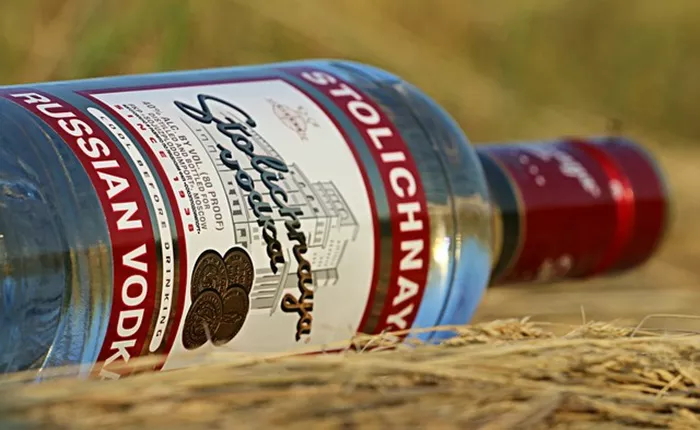Vodka is a popular alcoholic beverage known for its smoothness and versatility. Whether enjoyed on its own or as a key ingredient in cocktails, understanding the calorie content of vodka is important for those who are conscious about their calorie intake. In this comprehensive guide, we will explore the number of calories in an ounce of vodka and provide detailed information on various factors that can affect the calorie count.
Understanding Calories in Alcoholic Beverages
1. What Are Calories?
Calories are a unit of measurement for energy. When we consume food or drink, we are taking in calories that our bodies can use for various functions.
In the context of alcoholic beverages, calories come from the alcohol itself as well as any added sugars or mixers.
2. Why Are Calories in Alcohol Important?
For those who are watching their weight or trying to maintain a healthy diet, being aware of the calorie content of alcoholic beverages can help them make informed choices.
High calorie intake from alcohol can contribute to weight gain and other health issues if consumed in excess.
3. How Are Calories in Alcohol Measured?
Calories in alcohol are typically measured per volume, such as per ounce or per serving.
The calorie content can vary depending on the type of alcohol and any additional ingredients.
Vodka Basics
1. What Is Vodka?
Vodka is a clear, neutral spirit made from various ingredients such as grains, potatoes, or fruits.
It is known for its lack of color and distinct flavor profile.
2. Different Types of Vodka
There are many types of vodka available, including unflavored, flavored, and premium vodkas.
Flavored vodkas may have additional calories from the added flavors.
3. Production Process of Vodka
Vodka is typically produced through a distillation process, which involves fermenting a base material and then distilling the resulting liquid to increase the alcohol content.
The production process can affect the final calorie count of the vodka.
Calorie Content of Vodka
1. Unflavored Vodka
An ounce of unflavored vodka generally contains around 64 to 70 calories.
This relatively low calorie count makes vodka a popular choice for those looking to limit their calorie intake while still enjoying an alcoholic beverage.
2. Flavored Vodka
Flavored vodkas can have a higher calorie content due to the added flavors.
For example, a flavored vodka with natural fruit flavors may contain around 80 to 90 calories per ounce.
3. Premium Vodka
Premium vodkas may have a similar calorie content to regular vodkas, but they are often made with higher quality ingredients and a more refined production process.
Some premium vodkas may also have unique flavor profiles that can affect the calorie count.
Factors Affecting Calorie Content
1. Alcohol Content
The alcohol content of vodka can vary, with some vodkas having a higher percentage of alcohol by volume (ABV).
Generally, the higher the alcohol content, the more calories per ounce.
2. Added Sugars and Flavors
As mentioned earlier, flavored vodkas may have added sugars or natural flavors that can increase the calorie content.
Some flavored vodkas may also contain artificial sweeteners, which can have a different impact on calorie intake.
3. Serving Size and Mixers
The calorie content of a vodka drink can also be affected by the serving size and any mixers added.
For example, a vodka and soda water will have fewer calories than a vodka and cranberry juice.
4. Brand and Production Method
Different brands of vodka may have slightly different calorie counts due to variations in production methods and ingredients.
Some brands may use more energy-intensive production processes or add additional ingredients that can affect the calorie content.
Calculating Calorie Intake from Vodka
1. Determining Serving Size
To calculate the calorie intake from vodka, it’s important to know the serving size.
A standard serving of vodka is typically 1.5 ounces.
2. Considering Mixers and Garnishes
If you’re drinking vodka with mixers or garnishes, be sure to take these into account when calculating calorie intake.
For example, a vodka and tonic with a lime wedge will have more calories than just a shot of vodka.
3. Using Online Calorie Calculators
There are many online calorie calculators available that can help you determine the calorie content of specific vodka drinks.
These calculators can take into account the type of vodka, serving size, and any mixers or garnishes.
See Also: What Is Barton’s Vodka Made From?
Health Implications of Vodka Calories
1. Weight Gain and Obesity
Consuming too many calories from vodka or any other source can lead to weight gain over time.
Excessive calorie intake can contribute to obesity and related health problems such as diabetes, heart disease, and high blood pressure.
2. Alcohol and Metabolism
Alcohol can affect the body’s metabolism and may interfere with the way it processes calories.
This can make it more difficult to maintain a healthy weight if you consume alcohol regularly.
3. Moderation and Healthy Drinking Habits
To minimize the health risks associated with vodka calories, it’s important to drink in moderation.
This means limiting your intake to one or two drinks per day for women and two or three drinks per day for men.
4. Alternatives to High-Calorie Vodka Drinks
If you’re concerned about calorie intake, there are several alternatives to high-calorie vodka drinks.
For example, you can choose vodka and soda water with a splash of lime instead of a sugary mixer.
You can also opt for lower calorie mixers such as sparkling water or unsweetened cranberry juice.
Conclusion
Understanding the calorie content of vodka is an important part of making informed choices about your alcohol consumption. While vodka can be a relatively low-calorie option compared to other alcoholic beverages, it’s still important to be aware of the factors that can affect the calorie count. By choosing unflavored vodkas, moderating your intake, and being mindful of your mixers and garnishes, you can enjoy vodka while still maintaining a healthy diet.
You might be interested


